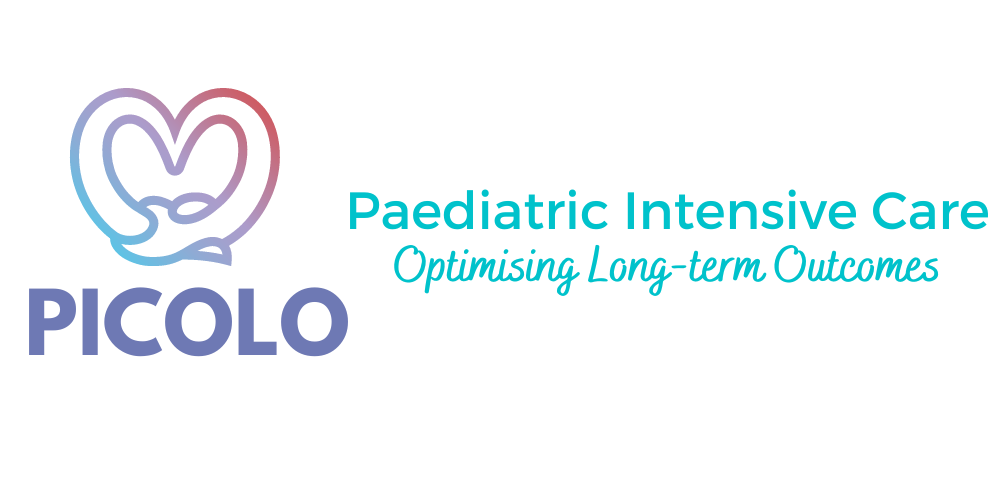Sleep after PICU
Disruptions to sleep in the PICU can occur from a range of sources including severe illnesses, injury, and pain from procedures/surgery, medications which impact sleep, and unnatural environmental factors such as harsh unnatural lighting and sound disturbances. To the right is an infographic showing a range of causes of sleep disturbances, including emotional disregulation from the PICU admission and other factors. Many of the factors are interacting and impact one another, for example emotional disregulation may lead to poor sleep, which in turn may lead to poor sleep.
It is important to know that these experiences are normal during and after PICU. There are some things we can do while in PICU to help reduce sleep disruptions during and after PICU, in the infographic below. These include:
Adequate pain management (using medication and non-medical interventions)
Minimising harsh lighting by dimming lights and opening windows to natural light during daytime, if possible
Closing doors to minimise noise disturbances, or using a sound app or machine for white-noise
Being aware of problems that may occur after PICU regarding sleep may also help to identify any problems early and to seek help from a healthcare professional. Some of these problems that commonly occur in children and adolescents after PICU are listed below.
Nightmares and Night Terrors
Emotional problems after PICU, such as fears and anxiety, post-traumatic stress symptoms or disorder, depressive symptoms, or over-tiredness or ongoing illnesses can cause nightmares and/or night terrors.
Nightmares can occur from anxieties and fears and may cause the child or adolescent to wake and be afraid or unsettled to go back to sleep. Reassurance and a hug can be helpful for your child if they have woken from a nightmare. Nightmares typically peak in children between 3-6 years of age, however are common in children and adolescents after a PICU admission or stressful illness or injury.
To help reduce nightmares, you may wish to try:
Doing a calming activity before bed such as reading or colouring
Avoid exciting videos or television before bed
For children over 12 months of age, avoid food and drinks an hour before bedtime
Night terrors typically occur in children aged 3-12 years, or when children have illnesses such as fevers or are over-tired. They typically consist of thrashing movements or screaming/crying out, however the child is not awake and does not remember the night terror the next morning. Despite the appearance of distress of your child, it is important not to wake them during a night-terror as they are not awake and will be confused and disoriented. You may wish to sit nearby until the night terror has passed, and to make sure they are not at risk of hurting themselves (e.g. banging their head on the bed headboard by placing a pillow between their head and the bed). If the night terrors are regular each night, you can try waking your child 10-15 minutes before it is due to occur, and seek help from a healthcare professional.
Night terrors typically occur before midnight, while nightmares typically occur after midnight (with a peak time between 4-6am).
More on Nightmares and Night Terrors here
More information on Night Terrors here
Trouble falling and/or staying asleep
Children and adolescents may have difficulties falling and/or staying asleep after PICU, due to the many disturbances in PICU such as the illness or injury itself as well as the disturbing PICU environment and medications. Fears, anxiety, and depression can also make it difficult to fall and stay asleep.
To assist with challenges falling or staying asleep, you may wish to:
Follow normal pre-bedtime routines (e.g. bath, wind-down routines) as much as possible
Stay with your child a little longer than usual if needed to fall asleep
Remember that you can only take care of your child if you can first take care of yourself. You may need to provide yourself with extra support after PICU such as extra assistance with family meals (from friends, family, or other providers), going for a walk, talking to a friend or family member about your experiences and feelings, or seeking help from a psychologist or other counselor for the transition home from hospital.
If any problems persist or are concerning to you and/or your child, seek help from your GP or a health professional.
Breathing disturbances during sleep
Children and adolescents who had invasive breathing assistance during PICU such as oral breathing tube, an endotracheal tube, or other oxygen support may have ongoing breathing challenges during sleep when back home.
References and Sources:
Sydney Child Health Network, Nightmares and Night Terrors, https://www.schn.health.nsw.gov.au/fact-sheets/nightmares-and-night-terrors
Royal Children’s Hospital, Night Terrors, https://www.rch.org.au/kidsinfo/fact_sheets/Night_terrors_night_time_wakings/



